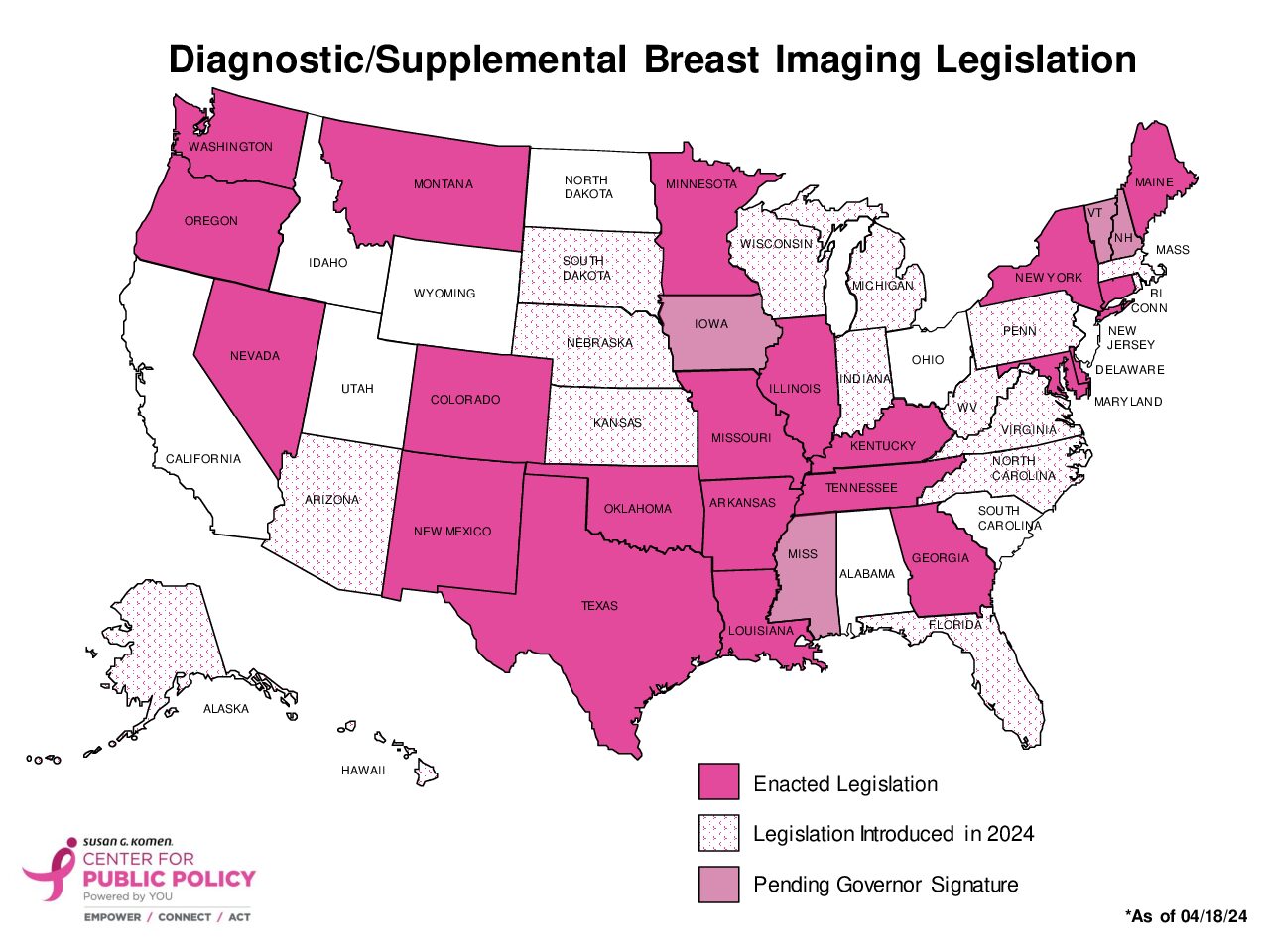Election Day is an important opportunity for all of us to use our voice and vote for local and national leaders who will ensure our access to high-quality, affordable health care when we need it. On Nov. 3, you can make a difference in the lives of more than 3.8 million breast cancer survivors, those living with the disease, and the people who love them, by voting for candidates who will defend the Breast Cancer Bill of Rights.
Plain and simple: The Breast Cancer Bill of Rights makes sure the needs of breast cancer patients are known and prioritized by lawmakers. Komen has asked every current member of Congress to sign the Bill of Rights and promise to vote for legislation that supports these rights.
Before you cast your vote this fall, Komen encourages you to consider these issues as you review the platforms of candidates for office. Through Komen’s Civic Engagement Center, advocates are able to: check voter registration status and register to vote; view polling locations and election dates; find out who’s running; and find absentee ballot information.
2020 Breast Cancer Bill of Rights
- CLINICAL TRIALS: All breast cancer patients should be informed about clinical trial opportunities and those who participate in a clinical trial have a right to coverage of routine health care costs. Eligibility for trials should prioritize inclusivity and reflect the diversity of patients who will use the drug or device.
- EARLY DETECTION AND DIAGNOSIS: Everyone has a right to access the most effective, evidence-based breast cancer screening and diagnostic tools that may inform treatment decisions, without the significant financial burden that can often prevent them from accessing the tests they need.
- FERTILITY PRESERVATION: Breast cancer patients who are at risk of infertility due to their breast cancer treatment deserve options for affordable fertility preservation and services.
- FINANCIAL STABILITY: Anyone diagnosed with breast cancer has a right to fight the disease without unreasonable out-of-pocket costs or fear of bankruptcy.
- GENETIC TESTING AND COUNSELING: Genetic testing and counseling should be an option for certain individuals with a family history of breast cancer to allow them to gain valuable information on their potential risks of developing the disease.
- HEALTH EQUITY: Everyone should be afforded the same high-quality care regardless of race or ethnicity, and no one should be at increased risk of dying from breast cancer or be diagnosed with late-stage breast cancer simply because of their race or ethnicity.
- HIGH-QUALITY TIMELY CARE: Everyone has a right to high-quality, timely care that allows them to make informed decisions and control their own health, no matter where they may receive medical services.
- INSURANCE: Breast cancer patients and survivors have a right to continuous, affordable, quality health insurance coverage, regardless of pre-existing conditions, income level or whether they have public or private insurance.
- PATIENT NAVIGATION: Breast cancer patients have a right to receive culturally appropriate navigation services to guide them through the burdensome health care system, since patient navigation services lead to better outcomes.
- RECONSTRUCTION: Breast cancer patients have a right to full mastectomy care, reconstruction or custom breast prostheses without burdensome cost-sharing requirements.
- RESEARCH: Everyone has a right to a government that makes investment in cancer research a national priority and gives all citizens access to needed medical advancements.
- STRONG SAFETY NET: People who are uninsured and underinsured have a right to a strong breast health care safety net.
- TRANSPARENCY: Breast cancer patients and survivors have the right to make informed decisions and control their own health, which requires transparent information not only about the risks and benefits of potential treatment options, but also the costs associated with them.


